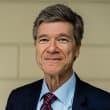Learn practical approaches to combat climate change, from global policies to local initiatives, with expert guidance from leading institutions.
Learn practical approaches to combat climate change, from global policies to local initiatives, with expert guidance from leading institutions.
This comprehensive course explores practical solutions for addressing climate change, taught by experts from renowned institutions including Columbia University's Earth Institute and the Deep Decarbonization Pathways Project. Through seven detailed modules, students learn about implementing the Paris Climate Agreement, deep decarbonization strategies, renewable energy solutions, agricultural emissions, land use monitoring, policy tools, and business solutions. The course combines theoretical knowledge with real-world case studies, providing a thorough understanding of how to transform climate commitments into concrete actions.
4.8
(9 ratings)
12,162 already enrolled
Instructors:
English
English
What you'll learn
Master key concepts of Paris Climate Agreement implementation
Understand deep decarbonization pathways and strategies
Learn about renewable energy technologies and their integration
Explore agricultural emission reduction techniques
Analyze land use monitoring and management approaches
Understand climate policy tools and carbon pricing
Skills you'll gain
This course includes:
PreRecorded video
Graded assignments, exams
Access on Mobile, Tablet, Desktop
Limited Access access
Shareable certificate
Closed caption
Get a Completion Certificate
Share your certificate with prospective employers and your professional network on LinkedIn.
Created by
Provided by

Top companies offer this course to their employees
Top companies provide this course to enhance their employees' skills, ensuring they excel in handling complex projects and drive organizational success.





There are 7 modules in this course
This comprehensive course addresses climate change solutions through a multifaceted approach. The curriculum covers crucial topics including Paris Agreement implementation, decarbonization strategies, renewable energy systems, agricultural emissions, land use monitoring, and policy mechanisms. Students learn from leading experts about practical approaches to reducing greenhouse gas emissions, implementing sustainable practices, and developing effective climate policies. The course incorporates case studies from various countries and sectors, providing real-world examples of successful climate action initiatives.
Implementing the Paris Climate Agreement
Module 1
Deep Decarbonization: The Three Pillars and National Case Studies
Module 2
Low Emissions Electricity & Renewables
Module 3
Agriculture and Emissions
Module 4
Monitoring Land Use
Module 5
Policy Tools for the Transition to Low-Emissions
Module 6
Low-Emission Solutions and the Business Community
Module 7
Fee Structure
Instructors

19 Courses
Sustainable Development and Economic Policy Pioneer
Jeffrey D. Sachs stands as one of the world's most influential economists and sustainable development experts, currently serving as University Professor at Columbia University and Director of the Center for Sustainable Development. His academic journey began at Harvard University, where he earned his B.A., M.A., and Ph.D. degrees, and later served as the Galen L. Stone Professor of International Trade for over twenty years. Throughout his career, Sachs has shaped global policy as Special Advisor to three UN Secretaries-General, advising on both the Millennium Development Goals and Sustainable Development Goals. His expertise spans economic development, global macroeconomics, and poverty alleviation, having worked in more than 125 countries. As Director of the UN Sustainable Development Solutions Network and President of SDG USA, he continues to drive sustainable development initiatives worldwide. His influential works include bestsellers such as "The End of Poverty," "Common Wealth: Economics for a Crowded Planet," and "The Age of Sustainable Development." His achievements have earned him numerous accolades, including the 2015 Blue Planet Prize and the 2022 Tang Prize in Sustainable Development, while Time Magazine has twice named him among the world's 100 most influential leaders. Beyond his academic work, he serves as a Commissioner of the ITU/UNESCO Broadband Commission for Development and maintains active engagement with the Pontifical Academy of Sciences and Social Sciences on sustainable development issues.

5 Courses
Energy Systems Expert and Climate Policy Pioneer
Dr. Jim Williams stands as a leading authority in energy systems and decarbonization strategies, currently serving as Professor of Energy Systems Management at the University of San Francisco and Senior Fellow at Evolved Energy Research. His influential career spans academia and industry, marked by groundbreaking work as director of the Deep Decarbonization Pathways Project, which shaped international climate policy through detailed emissions reduction roadmaps for 16 high-emission countries. After earning his BS in Physics from Washington and Lee University and both MS and PhD in Energy and Resources from UC Berkeley, he established himself as a key figure in climate policy development, particularly during his tenure as Chief Scientist at Energy and Environmental Economics (E3). His landmark studies on deep decarbonization in the United States have become foundational documents for climate policy, demonstrating how to achieve dramatic emissions reductions while maintaining economic growth. His expertise encompasses renewable energy integration, electric vehicle adoption, and energy market transformation, with special focus on the three pillars of decarbonization: energy efficiency, zero-carbon electricity, and electrification. As a Mandarin speaker with deep knowledge of China's energy systems, he continues to shape global energy transition through his research and leadership in developing comprehensive strategies for achieving net-zero emissions while training the next generation of energy professionals at USF's innovative Energy System Management graduate program.
Testimonials
Testimonials and success stories are a testament to the quality of this program and its impact on your career and learning journey. Be the first to help others make an informed decision by sharing your review of the course.
4.8 course rating
9 ratings
Frequently asked questions
Below are some of the most commonly asked questions about this course. We aim to provide clear and concise answers to help you better understand the course content, structure, and any other relevant information. If you have any additional questions or if your question is not listed here, please don't hesitate to reach out to our support team for further assistance.


